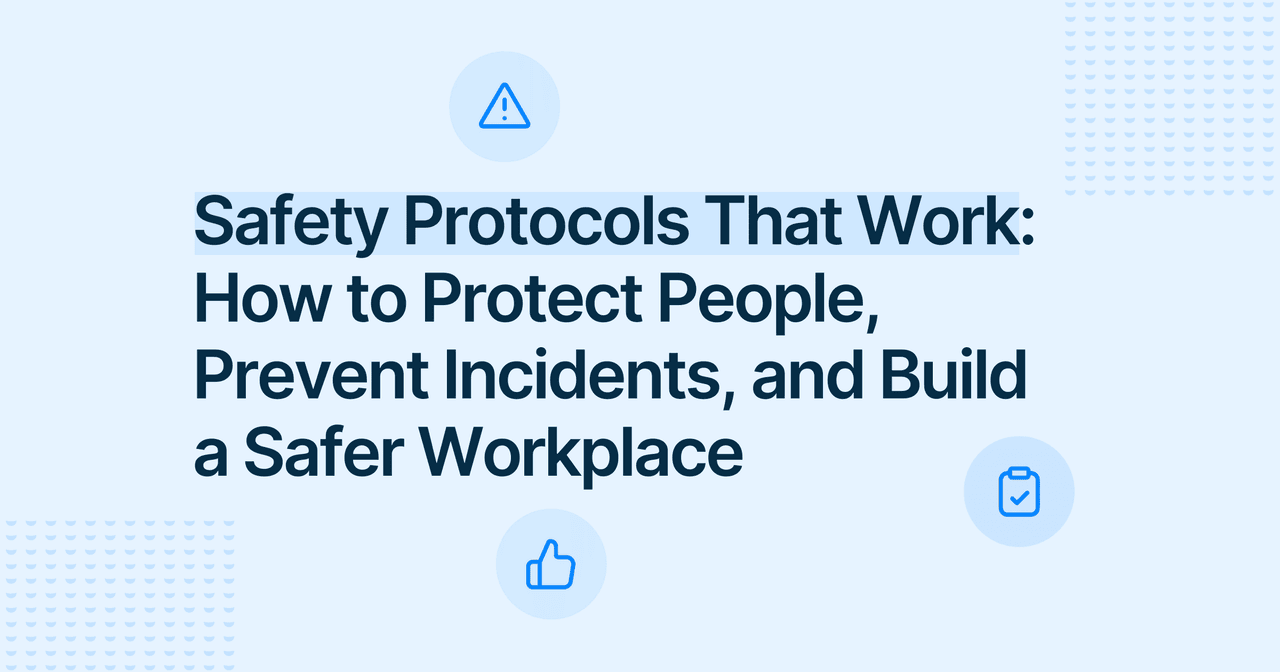



Modern Compliance Platform
Centralized whistleblowing and investigations in one secure platform.
Whistleblowing

Yeva Bartkiv
Copywriter
Published
2025-04-24
Reading time
7 min


Table of contents
Subscribe to our newsletter
Across the globe, whistleblowers play a vital role in defending the public interest, exposing illegal activities, and holding powerful institutions accountable. Whether reporting false claims in healthcare, financial fraud in business, or unsafe conditions affecting public health, whistleblowers are often the first line of defense against corruption and cover-ups.
But what exactly is whistleblowing? Who qualifies as a whistleblower, and what kinds of protections exist to keep them safe? In this article, we’ll break down the types of whistleblowing with examples, examine famous examples of whistleblowing, and discuss what organizations can do to encourage employees to speak up without fear.
Whistleblowing means reporting illegal, unethical, or harmful activities within an organization. Whistleblowers can be employees, former staff, contractors, or even external parties. Laws protecting whistleblowers from retaliation (such as dismissal or blacklisting) vary by country, and there has been a push for stronger safeguards, especially in the EU.
If you’d like to learn more about whistleblowing and related terms, check out the FaceUp FAQ.

Understanding the types of whistleblowing with examples is key to recognizing their impact:
Let’s explore some internal whistleblowing examples and external whistleblowing examples.
An example of whistleblowing in business might be an accountant reporting suspicious financial transactions that could indicate money laundering. Internal reports allow organizations to resolve problems before they become public, and often signal a healthy, transparent workplace culture.
A leading sports retailer, SPORTISIMO, introduced an internal whistleblowing system. Employees used the channel to report that women’s shoe sizes were not being stocked, affecting inclusion. The organization quickly addressed the problem, improving both morale and customer satisfaction. This shows how internal whistleblowing examples aren’t always about major scandals – they often drive meaningful, everyday improvements.
In healthcare, internal whistleblowing examples might include a nurse reporting unsafe staffing levels or lack of hygiene protocols. Many whistleblowing nursing examples have led to significant reforms in hospitals and care homes.
A high-profile external whistleblowing example is the case of Frances Haugen, a former employee at Facebook (Meta), who leaked internal documents to The Guardian, lawmakers, and regulators. Her actions revealed that the company was aware of the mental health risks its platforms posed to teens, sparking international debate and legislative scrutiny. This whistleblowing example demonstrates how external whistleblowing can serve the public interest when internal channels fail.
Examples of whistleblowing in engineering include engineers reporting design flaws that threaten health and safety. For instance, an engineer may alert authorities about structural weaknesses in a bridge. Such ethical whistleblowing examples can save lives and prevent disasters.

Among the most famous examples of whistleblowing is Edward Snowden, a contractor for the National Security Agency (NSA). In 2013, Snowden leaked classified information to The Guardian and The Washington Post, revealing secret surveillance programs used by the U.S. government to monitor millions of people worldwide, including American citizens.
Snowden’s disclosures sparked intense debate on human rights, privacy, and the limits of government power. While some saw him as a hero defending the public interest, others accused him of violating the Espionage Act. The FBI charged him with theft of government property, and he sought asylum in Russia, where he remains today.
Another legendary whistleblower is Mark Felt, then associate director of the FBI. Under the pseudonym "Deep Throat", Felt provided crucial information to Washington Post reporters investigating the Watergate scandal – a political cover-up that led to the resignation of President Richard Nixon. Felt’s decision to speak up changed American history and highlighted the essential role of whistleblowers in defending democracy.
Chelsea Manning, a former U.S. Army intelligence analyst, provided classified documents to WikiLeaks that exposed abuses during the Iraq and Afghanistan wars. The materials revealed possible war crimes and diplomatic scandals, prompting debate about transparency, the public interest, and national security. Manning was convicted under the Espionage Act, but her case ignited global discussions on whistleblower protection and the responsibilities of government agencies.
In the LuxLeaks scandal, whistleblowers in Luxembourg revealed how multinational companies secured secret tax deals to avoid billions in taxes. The leaks led to widespread criticism, changes in international tax law, and highlighted the need for stronger whistleblower protection laws to prevent retaliation against those who expose false claims and illegal activities.
Examples of whistleblowing in healthcare are among the most critical for protecting public health. From reporting health and safety violations in hospitals to exposing fraudulent billing practices, whistleblowers ensure patients receive safe, ethical care.

These are powerful examples of whistleblowing in the workplace that put patient safety first and improve trust in the healthcare system.
Examples of whistleblowing in schools include teachers or staff reporting abuse, discrimination, or the misuse of public funds. These whistleblowing cases are crucial for maintaining ethical standards and keeping students safe.
A police officer assigned to a school may report bullying or misconduct that school administration fails to address. By speaking up, staff protect students and ensure accountability.
Engineering whistleblowing examples are vital for protecting the public interest and health and safety. An engineer who notices a design flaw in a high-rise or a bridge that could lead to catastrophic collapse is obligated to report it. These ethical whistleblowing examples not only save lives but also uphold professional integrity.
To encourage employees to speak up, robust whistleblower protection is essential. The EU Whistleblowing Directive requires member states to create secure reporting channels and protect whistleblowers from retaliation. In the U.S., laws like the Whistleblower Protection Act, False Claims Act, and others provide legal recourse for those who report wrongdoing in the federal government and private sector.
Despite these laws, gaps remain. High-profile whistleblowers like Edward Snowden and Chelsea Manning have faced prosecution under the Espionage Act, while others risk demotion, blacklisting, or worse. Strengthening protections is critical for ensuring that the public interest is always put first.
Every organization should develop a clear, accessible whistleblowing policy that encourages employees to speak up without fear. A strong whistleblowing procedure example includes:
Organizations that build a culture of transparency see higher trust, improved public health and safety, and a reduced risk of scandal or cover-up.
Here’s a summary of real life examples of whistleblowing that demonstrate the broad impact whistleblowers have:
These cases show that speaking up can drive positive change. However, it’s important to remember that whistleblowing isn’t always clear-cut. Sometimes, people struggle with whether a report is ethical, and in rare cases, whistleblowing can be used for personal gain or to harm others. So one may ask, is whistleblowing actually ethical or unethical?
From internal whistleblowing examples in small businesses to famous examples of whistleblowing at the national level, the courage to speak up shapes organizations, industries, and even countries. As laws like the EU Whistleblowing Directive spread, and as companies adopt more robust whistleblower protection measures, the future looks brighter for those who put integrity first.
Whether you’re looking for a whistleblowing policy example, advice on how to introduce a secure reporting system, or want to learn more about examples of whistleblowing cases relevant to your industry, supporting whistleblowers is always in the public interest.
If you’re considering implementing a whistleblowing platform or want to explore more about ethical practices in your field, reach out for support and guidance. Remember, the most important step is to empower everyone to speak up – because when whistleblowers are heard, everyone benefits.




Centralized whistleblowing and investigations in one secure platform.
Keep Reading

Alaa El-Shaarawi2026-02-108 min
Legal & Compliance

Alaa El-Shaarawi2026-02-098 min
Workplace Environment

Marie Roland2026-02-033 min
Workplace Environment

Alaa El-Shaarawi2026-02-029 min
Workplace Environment